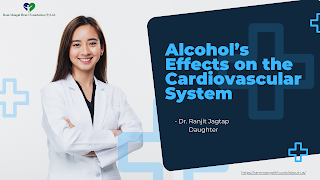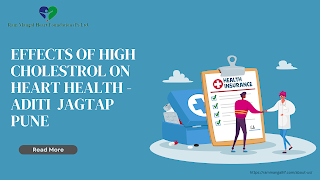Debunking the myths about heart health - Dr. Ranjit Jagtap Daughter

When it comes to heart health, there are countless myths and misconceptions that can leave you feeling confused and overwhelmed. From the belief that heart disease only affects older individuals to the idea that a healthy diet is all it takes to prevent heart issues, these myths can be dangerous if left unaddressed. Dr Ranjit Jagtap , the famous Heart Surgeon hence had taken the initiative to debunk the top 5 myths about heart health that you should stop believing today. By separating fact from fiction, his goal is to help you make informed decisions about your heart health and reduce your risk of developing heart disease. So, let's dive in and get to the truth behind these common misconceptions! Myth #1: Heart disease only affects older people One of the most common misconceptions about heart health is that heart disease only affects older individuals. While it's true that the risk of heart disease increases as we age, it's by no means a condition that only affects the e...




.png)
